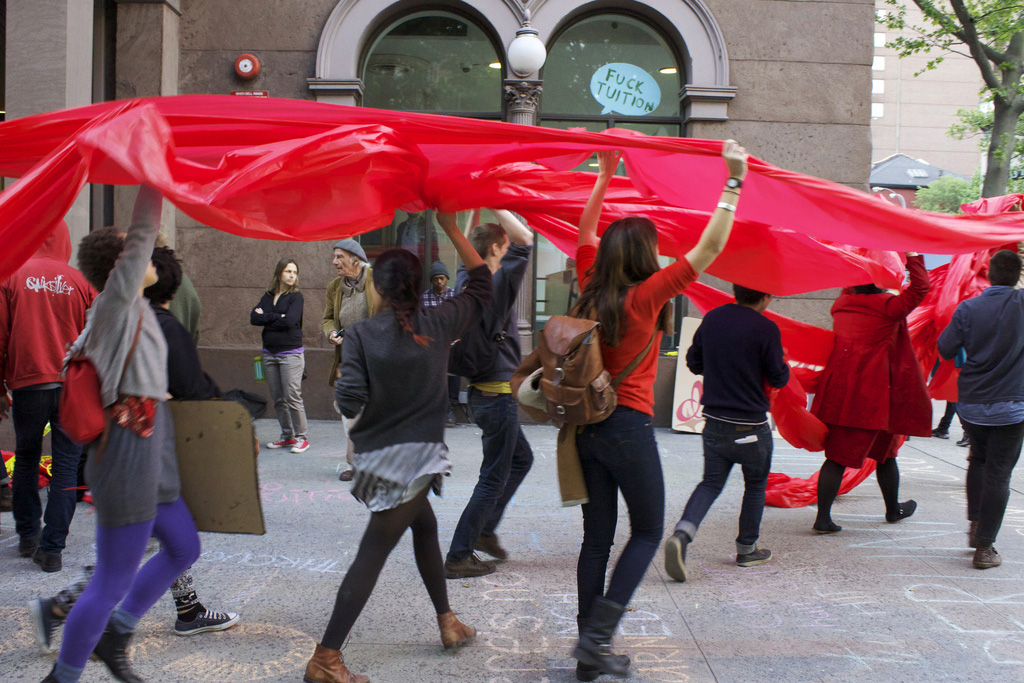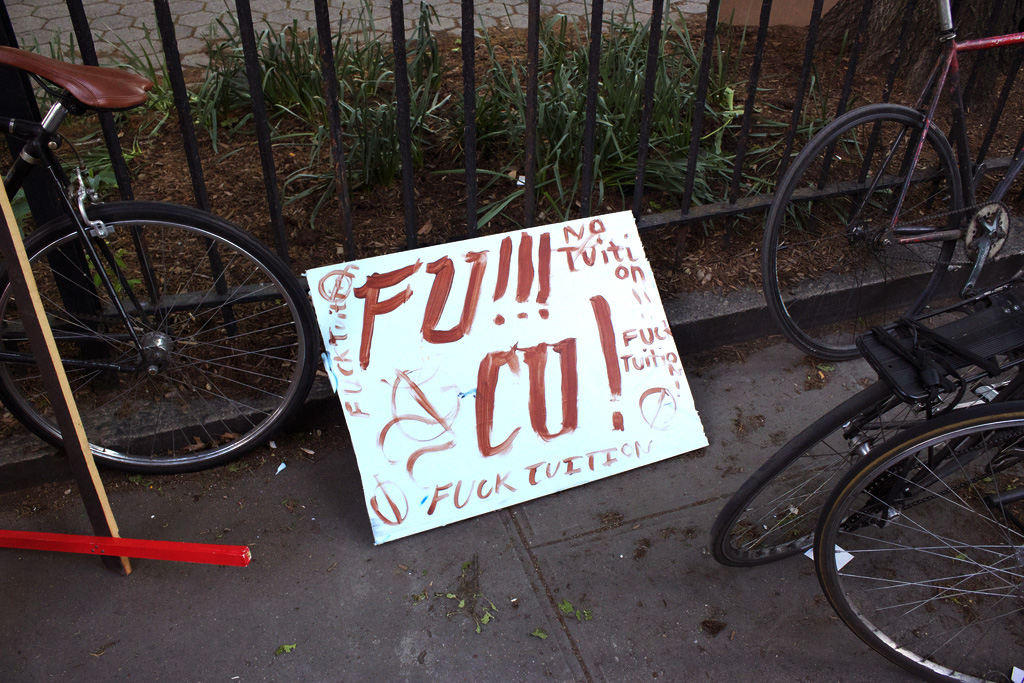In response to Tuesday’s revelation in the New York Times that The Cooper Union for the Advancement of Science and Art will charge tuition for the first time, hundreds of students took to the streets on Wednesday to protest Cooper Union President Jamshed Bharucha’s decision.

The change will only affect students in the graduate program – undergrads will still able to attend Cooper Union without charge – but that did not prevent a mass outpouring of anger and disappointment at the school’s East Village campus.
“Yesterday, the administration announced to the New York Times – basically at the same time, if not before telling the students – that they are going to increase the graduate programs and charge tuition for them,” said Casey Gollan, a student at Cooper Union. “We’re all pissed about hearing about this yesterday, not from the administration, but from the papers”
Student protests in New York were already planned with Wednesday’s T-Day March – a demonstration against student debt, which on April 25 was expected to exceed $1 trillion nationally for the first time. But Bharucha’s announcement only increased the fervor with which many took to the streets. Cooper Union students began the day with a walk-out at 8 AM, and occupied Cooper Square until 4 PM, when some left to join the T-Day march from Union Square.
Many Cooper Union students brought furniture and banners into Cooper Square for the protest. At around 12:30 PM, they began throwing the banners from the classroom windows, carrying them into the park, and using them to wrap the statue of Peter Cooper — the institution’s founder — that stands at the corner of East 7th St. and Cooper Square. Afterwards, they staged a puppet show that mocked members of the administration.
Jessie Kreuzer, a recent Cooper Union alumnus, climbed the statue in solidarity with the protest. He stood there for over an hour until NYPD officers took him into custody. Officers also arrested student Sara Abruna, 23. The incident was caught on camera and posted on YouTube.
The demonstrations came after months of tension over whether or not the 153 year-old institution, which has functioned as a tuition-free academy since its inception, would have to start charging students in order to cope with its financial problems. In October, 2011, Bharucha told the New York Times of the possible implementation of tuition for the school’s undergraduate program.
“Within the understanding of the student debt protests and how national debt is a trillion dollars, people seek places like the Cooper Union because of its mission,” said Olivia Ahn, a student at the School of Architecture. “It would be unfortunate to see it diluted, and only to recede into the other types of American education.”

Cooper students plan to continue their attempt to preserve the university’s mission, with a community summit organized by the Friends of the Cooper Union planned for Thursday, April 26. Students, alumni, and faculty are expected to discuss alternatives to tuition implementation.
“I think we’re seeking passion from everyone to solving this,” said Ahn. “It would be nice to have those in the administration and the president declare their position on free tuition publicly to the student, faculty and alumni body.” According to Ahn, this would be the only way they could work openly and fully towards inventive and united solutions.







Leave a Reply